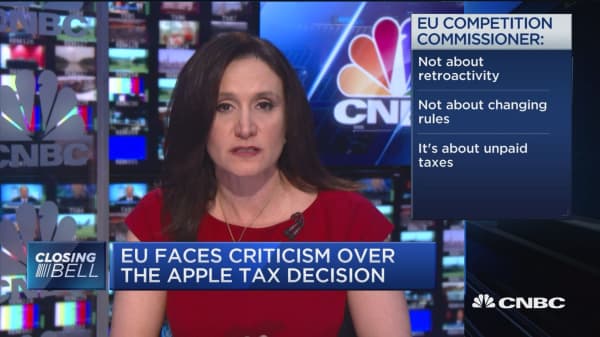The European Union official who slapped Apple with a $14.5 billion back tax bill signaled over the weekend she's not done yet with American companies that park profits offshore to lower their tax bills.
Those profits swelled to some $2.4 trillion — or about 14 percent of U.S. gross domestic product, according to new estimates released Monday.
The EU's antitrust commissioner, Margrethe Vestager, was in Washington on Monday to meet with U.S. officials, including Treasury Secretary Jack Lew, who has been bluntly critical of a series of EU investigations into taxes paid by American companies on profits held outside the U.S.
Both Apple and the Irish government are appealing a ruling last month that the tech giant owes the Irish Treasury $14.5 billion, based on a government tax break that the EU ruling said qualified as "state aid." Such assistance amounts to an illegal subsidy under EU law, the ruling said.





